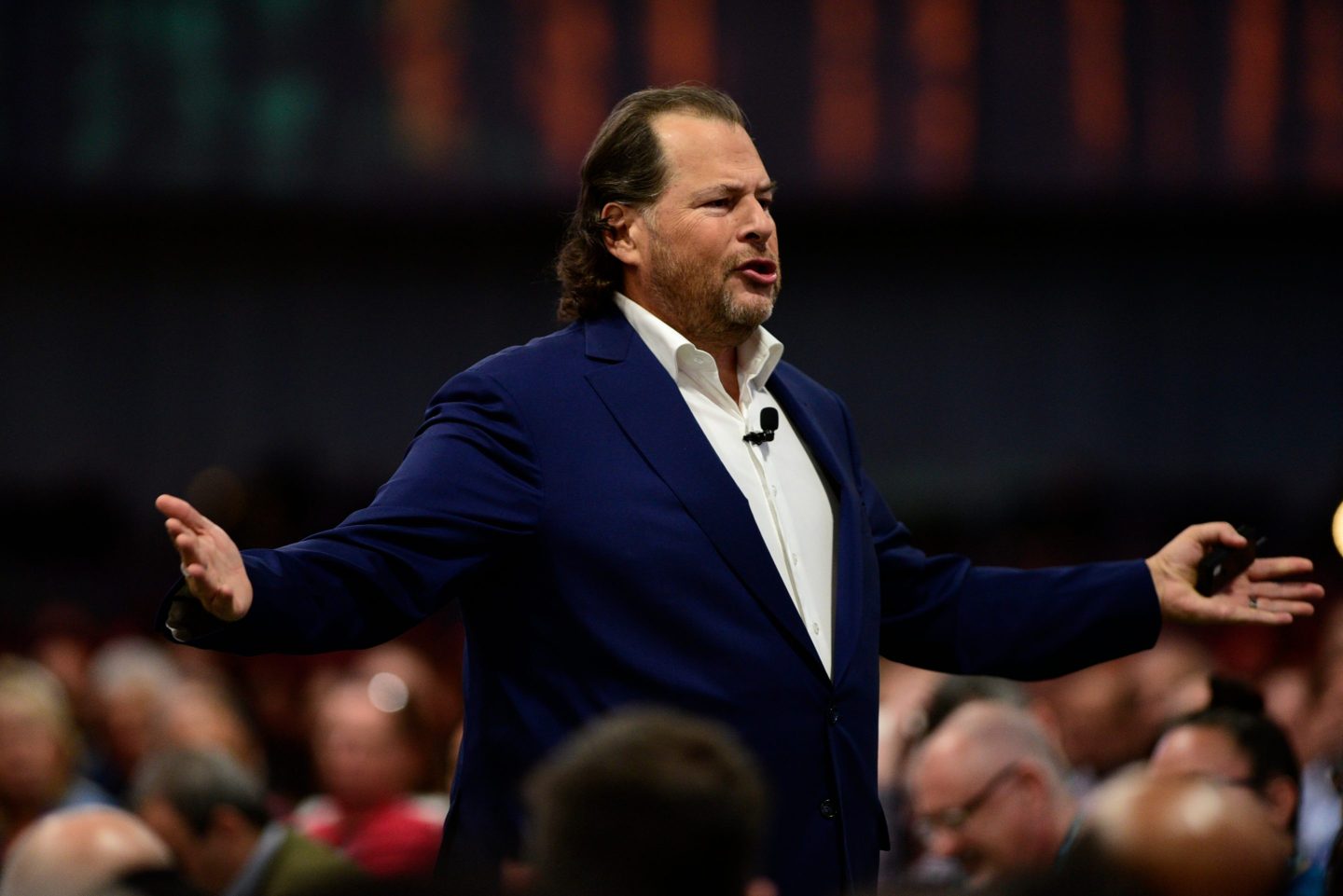Good morning.
The hedge fund attack on Salesforce is being interpreted by some as a shareholder backlash against stakeholder capitalism…similar to previous attacks on Unilever and Danone. And certainly, CEO Marc Benioff is a champion of the stakeholder movement. He founded his company on an innovative “1-1-1” model that dedicates funds and employee time to charity and community service; he has been a relentless campaigner on behalf of oceans and the environment; and he triggered the trend toward CEO activism with his 2015 attack on Indiana’s religious liberties law, which was seen as restricting LGBTQ rights.
But what’s interesting is that even before Salesforce attracted an investment from Paul Singer’s Elliott Management—which clearly is no friend of the stakeholder movement—the company received an investment from Jeffrey Ubben’s and Lynn Forester de Rothschild’s Inclusive Capital Partners, an activist fund founded to support the stakeholder model. While agreeing that Salesforce is undervalued, that it needs to boost profit margins, and that Benioff needs a clear succession plan, Inclusive Capital provided a statement yesterday saying: “Salesforce was founded on the stakeholder model, which is at the core of Inclusive Capital Partners’ mission.” The statement praised the company’s Trailblazer community “as an example of inclusive growth,” and said the company’s effort to build “a high-integrity marketplace for reducing emissions on the Salesforce cloud is a big opportunity long term.”
What to make of all this? I confess, I’m not a disinterested observer. Salesforce has been an important partner to Fortune since our independence four years ago; I consider Benioff a friend; and he generously endorsed my book, Tomorrow’s Capitalist. So I’m not in the best position to judge.
But the bigger point is that shareholders and stakeholders can’t be held at odds. Benioff’s approach to his business—which has some similarities to P.T. Barnum’s—has been wildly successful for shareholders during most of the company’s existence. But in the past year, it has stalled, throwing a new light on large marketing budgets, high-profile celebrity events with the likes of Will.i.am, and other unique ingredients in the Benioff cookbook. It should be no surprise shareholders are demanding a reset. Don’t assume that means a rejection of the focus on social goals. As Benioff said in a text message last night: “I value all of my stakeholders, especially shareholders. This is the most important thing about stakeholder capitalism.”
More news below.

Alan Murray
@alansmurray
alan.murray@fortune.com
TOP NEWS
TikTok pressure
The heads of the U.S. Senate Select Committee on Intelligence have stepped up pressure on TikTok, saying Chinese officials determine the algorithms that establish what’s trending on the social-media platform. Senators Mark Warner and Marco Rubio said Beijing would be able to use TikTok to “shape American public opinion in a time of crisis.” Fortune
Adani latest
Adani Group shares continued their plunge in India today, with some falling the maximum 20%. Gautam Adani’s conglomerate yesterday issued a 54-page response to fraud allegations by short-seller Hindenburg Research, claiming that the allegations were “not merely an unwarranted attack on any specific company but a calculated attack on India,” and that the “leverage ratios of Adani Portfolio companies continue to be healthy and are in line with the industry benchmarks of the respective sectors.” The markets clearly aren’t mollified. Financial Times
U.S. chips
American export restrictions have failed to stop China’s preeminent nuclear-weapons research institute from buying many cutting-edge U.S. semiconductors over the past couple years. The Journal reported that the blacklisted institute got its Intel and Nvidia chips from Chinese resellers. However, there’s no evidence of it buying the very latest chips that were launched during the period of the supposed restrictions. Wall Street Journal
AROUND THE WATERCOOLER
FTX’s Sam Bankman-Fried must stop contacting former employees, prosecutors say, by Leo Schwartz
Elon Musk says he’s sorry for his tweet about the attack on Paul Pelosi after bodycam footage released: ‘I apologize,’ by Steve Mollman
“Avatar: The Way of Water” tops domestic box office for 7th weekend in a row, becomes 4th-highest grossing film of all time globally, by Associated Press
Gen Z’s recession fears are making them more selective while job-hunting. Here’s what bosses need to do to reel them in, by Chloe Berger
This edition of CEO Daily was edited by David Meyer.
This is the web version of CEO Daily, a newsletter of must-read insights from Fortune CEO Alan Murray. Sign up to get it delivered free to your inbox.













